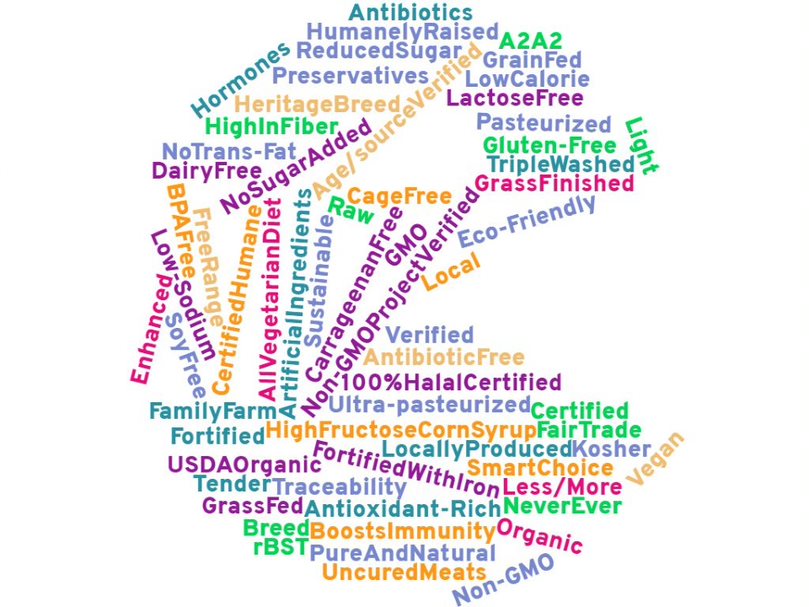Animal raising claims can be confusing on food labels
New infographic created by Michigan State University Extension helps consumers understand animal raising label claims such as free range, cage free, and natural.

Understanding food label claims can help consumers make informed choices when making food purchasing decisions. Food labels have a myriad of logos, claims, and production information. Label claims can be government defined and approved, third-party certified, or be a claim made by the manufacturer or producer and verified through documentation.
The focus of this article is on animal living conditions and animal raising label claims used on meat and poultry products. Such claims describe the environment animals were raised in during their lifespan. A few of the most commonly used animal raising claims include “Free Range” or “Free Roaming,” “Cage Free” or “Crate Free;” “Pasture Raised,” “Naturally Raised,” and others certified by third-party organizations.
Two different agencies, United States Department of Agriculture (USDA) and the U.S. Food and Drug Administration (FDA), oversee government approved and regulated claims to ensure that the claims are truthful and not misleading. The USDA Food Safety and Inspection Service oversees meat, poultry, and egg products (not shell eggs) and the FDA regulates shell eggs and their labels.
“Free Range” is a government certified claim defined by the USDA as “produced by hens housed in a building, room, or area that allows for unlimited access to the outdoors during their laying cycle. The outdoor area may be fenced and/or covered with netting like material.” (USDA 2015). This claim is regulated by the USDA for poultry but not for beef, pork, or lamb production. “Free Range” or “Free Roaming” labels can be used for livestock if the animals have not been confined to a feedlot.
 Products carrying the label claims “Cage Free” or “Crate Free” indicate that the animals or birds have been able to freely move around without restriction in a building, enclosure, or on pasture and they have unrestricted access to food and fresh water throughout their production cycle.
Products carrying the label claims “Cage Free” or “Crate Free” indicate that the animals or birds have been able to freely move around without restriction in a building, enclosure, or on pasture and they have unrestricted access to food and fresh water throughout their production cycle.
“Pasture Raised” is not the same as “Free Range” and is not defined by the USDA. “Pasture Raised” is a producer claim that refers to the production system used.
“Naturally Raised” also refers to production practices and cannot be used on meat or poultry labels because the claim could easily be confused with the “Natural” label claim. “Naturally Raised” typically indicates that antibiotics and/or growth promoting hormones were not given to the animal.
Animal welfare and environmental stewardship claims can also be certified by third-party organizations. Examples of third-party claims include “Humanely Raised” or “Sustainably Farmed.” Third-party certifying organizations have their own set of standards and the claims are most often used to enhance standard labels.
Michigan State University Extension is developing a series of single page infographics to assist consumers in understanding the definitions of popular label claims. The single page graphics will cover organic and natural claims, hormones, antibiotics, GMOs, and other claims found on labels. They are available on MSU Extension’s Food Label Claims webpage.
For more information, contact Mary Dunckel by email at dunckelm@msu.edu or Jeannine Schweihofer at grobbelj@msu.edu.



 Print
Print Email
Email
